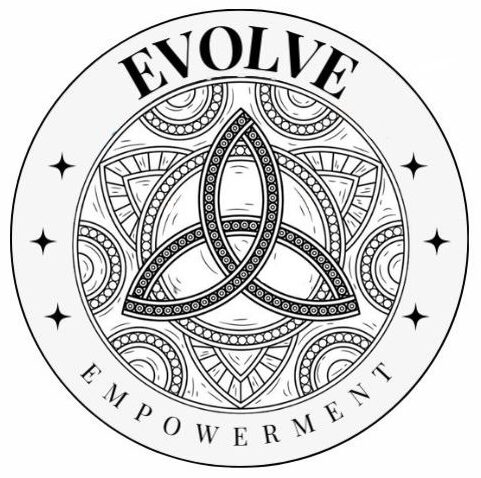Achieving goals is a deeply personal journey, yet it often benefits immensely from collaboration. While individual determination and self-discipline are important, having an accountability partner can amplify your chances of success.
By offering support, feedback, and structured guidance, accountability partners play a transformative role in helping individuals stay committed and reach their aspirations.
Understanding Accountability and Its Impact on Goal Achievement.
Defining Accountability and Its Critical Role.
At its core, accountability refers to being answerable for one’s actions, decisions, and progress. It requires individuals to take ownership of their goals while providing a system of checks and balances.
This accountability ensures a commitment that is harder to break, as the presence of an external observer makes excuses less viable and actions more deliberate.
How Accountability Structures Goal Attainment.
Accountability transforms abstract goals into actionable plans by instilling structure. It encourages clear timelines, measurable outcomes, and periodic reviews. This systematic approach prevents procrastination and ensures steady progress toward the desired outcomes.
Psychological Benefits of Accountability.
The psychological impact of accountability is profound.
Having someone to track your progress and provide feedback reinforces motivation, validates efforts, and alleviates feelings of isolation.
Knowing someone else is invested in your success can boost confidence and encourage resilience during challenging phases.
Accountability as a Catalyst for Self-Discipline.
Accountability partners act as anchors, nurturing self-discipline and focus.
When distractions arise or motivation wanes, a partner can redirect attention to the goal, emphasizing priorities and fostering consistency in behavior.
The Role of Accountability Partners in Personal Growth.
Defining the Accountability Partner.
An accountability partner is someone who agrees to support and monitor another person’s journey toward achieving specific goals.
Their responsibilities range from providing encouragement to offering constructive criticism and serving as a sounding board for ideas and challenges.
Formal vs. Informal Accountability Partnerships.
Formal accountability partnerships are structured relationships, often involving coaches, mentors, or professional services.
These relationships typically focus on measurable outcomes and regular, scheduled check-ins. Informal partnerships, on the other hand, may involve friends, colleagues, or peers.
While less rigid, they rely on mutual trust and shared commitment.
Real-Life Success Stories.
For example, entrepreneurs often credit their success to having a business mentor who held them accountable for their strategic decisions. Similarly, fitness enthusiasts frequently achieve significant milestones by teaming up with workout buddies who share their commitment to health.
The Importance of Regular Check-ins.
Consistency is key to accountability. Regular check-ins and honest communication provide opportunities to celebrate progress, address setbacks, and refine strategies.
These sessions build a foundation of trust and ensure the accountability partnership remains effective.

Crafting Effective Goals with an Accountability Partner.
1. The Role of Collaboration in Setting SMART Goals.
The section emphasizes the importance of setting SMART goals—Specific, Measurable, Achievable, Relevant, and Time-bound—and highlights the value of collaboration in this process. Accountability partners enhance this by:
- Providing external perspectives that refine vague or unrealistic goals.
- Challenging the individual to clarify objectives and focus on measurable outcomes.
- Reinforcing the discipline of aligning goals with achievable timelines and resources.
This collaborative process ensures that the goals are well-defined and grounded in reality, significantly improving the likelihood of success.
2. Aligning Support Strategies.
The focus on alignment reflects the need for accountability partners to actively contribute to the goal-achievement process. Examples of support strategies include:
- Brainstorming Solutions. Partners act as problem-solvers during challenges.
- Offering Resources. They may provide tools, knowledge, or connections that aid progress.
- Motivational Support. By maintaining positivity and encouragement, they help sustain energy and commitment.
The emphasis here is on teamwork, with the accountability partner as an engaged participant, not just an observer.
3. Flexibility and Goal Adaptation.
This part recognizes that life circumstances can change, making flexibility essential. Accountability partners play a crucial role in:
- Reassessing Goals. Evaluating if the original objectives remain realistic and relevant.
- Adjusting Timelines and Metrics. Modifying targets without compromising the essence of the goal.
- Maintaining Momentum. Ensuring that adjustments don’t lead to demotivation or abandoning the objective altogether.
The adaptability discussed here underscores the dynamic nature of goal-setting, where revisions are a sign of strategic thinking rather than failure.
4. Real-World Case Studies.
By including practical examples, the unit brings theoretical ideas to life. Examples like writing partners or fitness duos illustrate how.
- Accountability partnerships drive consistent action.
- Regular feedback and shared milestones create a rhythm of success.
- Collaboration fosters creativity and problem-solving, leading to tangible results.
These stories provide inspiration and evidence of the effectiveness of accountability in diverse contexts.
Strengths of the Unit.
- Clarity. Each aspect of goal-setting is broken down into actionable steps.
- Realism. The discussion of flexibility acknowledges real-life unpredictability.
- Relatability. Practical examples make the concepts easy to understand and apply.

Opportunities for Enhancement.
- Examples Beyond Common Scenarios. Including less conventional accountability partnerships (e.g., in artistic or community-focused goals) could broaden the appeal.
- Tools and Frameworks. Suggesting specific tools (e.g., apps or templates) for goal tracking could add practical value.
What Makes a Great Accountability Buddy for Goals?
Key Characteristics of an Effective Accountability Buddy.
Empathy, reliability, and motivation define a successful accountability buddy.
Empathy ensures understanding and support during setbacks, while reliability guarantees consistency. Motivation fosters a positive and proactive dynamic.
Choosing the Right Partner.
Selecting the right accountability buddy involves aligning values, goals, and communication styles.
A fitness enthusiast, for example, might thrive with a similarly driven workout partner who shares their schedule and ambition.
Mutual Benefits of Accountability Partnerships.
Being an accountability buddy is not a one-sided affair. The relationship benefits both parties, fostering shared growth and learning.
Partners can inspire and challenge one another, creating a symbiotic environment where success is mutual.
Practical Tips for Maintaining Productivity.
To sustain a positive partnership, prioritize open communication, establish clear expectations, and celebrate milestones together.
Regularly revisiting shared goals keeps the relationship dynamic and ensures ongoing engagement.
The Power of Partnership in Achieving Goals
Accountability partners are more than mere observers—they are catalysts for success.
By providing structure, encouragement, and adaptability, they enhance the goal-setting and achievement process.
Whether through formal mentoring relationships or informal peer support, accountability partnerships foster growth, discipline, and resilience, transforming ambitions into accomplishments.
If you are striving toward meaningful goals, consider finding an accountability partner to share the journey. Together, you can achieve far more than you could alone.
Bibliography.
While this article is written based on general knowledge and expertise, the following sources can be referenced for further reading and credibility:
- Covey, S. R. (1989). The 7 Habits of Highly Effective People: Powerful Lessons in Personal Change. Simon & Schuster.
- Locke, E. A., & Latham, G. P. (2002). Building a Practically Useful Theory of Goal Setting and Task Motivation: A 35-Year Odyssey. American Psychologist, 57(9), 705–717.
- Gollwitzer, P. M. (1999). Implementation Intentions: Strong Effects of Simple Plans. American Psychologist, 54(7), 493–503.
- Duckworth, A. (2016). Grit: The Power of Passion and Perseverance. Scribner.
- Duhigg, C. (2012). The Power of Habit: Why We Do What We Do in Life and Business. Random House.
- Heath, C., & Heath, D. (2010). Switch: How to Change Things When Change Is Hard. Crown Business.
- Adams, S. (2013). The Accountability Manifesto: How Accountability Helps You Stick to Goals. CreateSpace Independent Publishing Platform.

